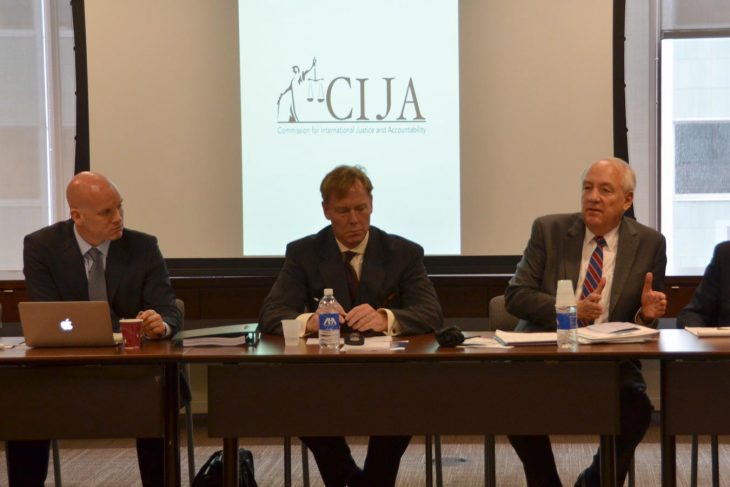To listen to the podcast, click on the "play" button below:
What do you do when there are massive atrocities taking place but no international tribunal, no national courts, not even the glimmer of a UN enquiry, yet collecting the evidence? One answer has been provided by CIJA – the Commission for International Justice and Accountability – a private NGO “dedicated to furthering criminal justice efforts through investigations, in order to prevent the loss and destruction of vital evidence for the purpose of supporting prosecutorial efforts to end impunity, whether at the domestic or international level”. Their very early endeavours gathering evidence in Syria, for example, are bearing fruit at trials such as the one in Koblenz, Germany of a senior state official which we featured here.
This model has been lauded in the media. But earlier in 2020 a long running EU investigation into fraud around several NGOs operating in evidence collection in Syria and Iraq brought CIJA some negative headlines.
Nerma Jelacic, director for management, talks about what CIJA is now doing. She also talks about the crimes she covered as a journalist in her home town Visegrad, which were dealt with at the ICTY, where she headed up communications.
Because the sound quality got worse near the end we did not ask our usual Asymmetrical Haircuts questions so we have no recommendations to share here. But in the show both Nerma and Stephanie refer to Caliphate the podcast on collecting evidence against ISIS by Rukmini Callimichi.
 ASYMMETRICAL HAIRCUTS
ASYMMETRICAL HAIRCUTS
This podcast has been published as part of a partnership between JusticeInfo.net and Asymmetrical Haircuts, a podcast on international justice produced from The Hague by journalists Janet Anderson and Stephanie van den Berg, who retain full control and independence over the contents of the podcast.






